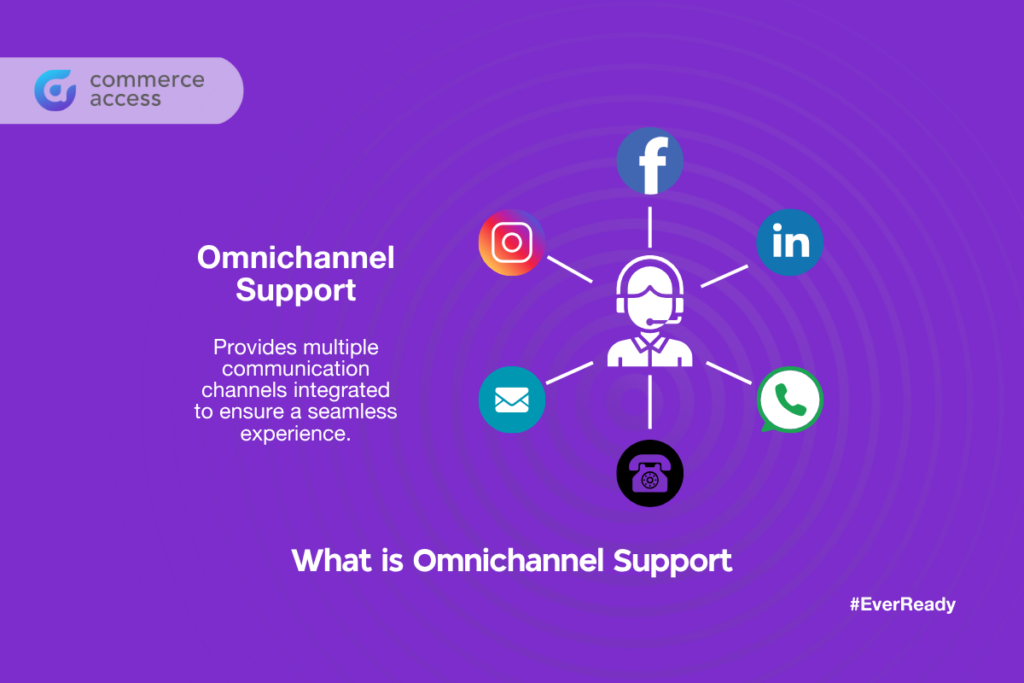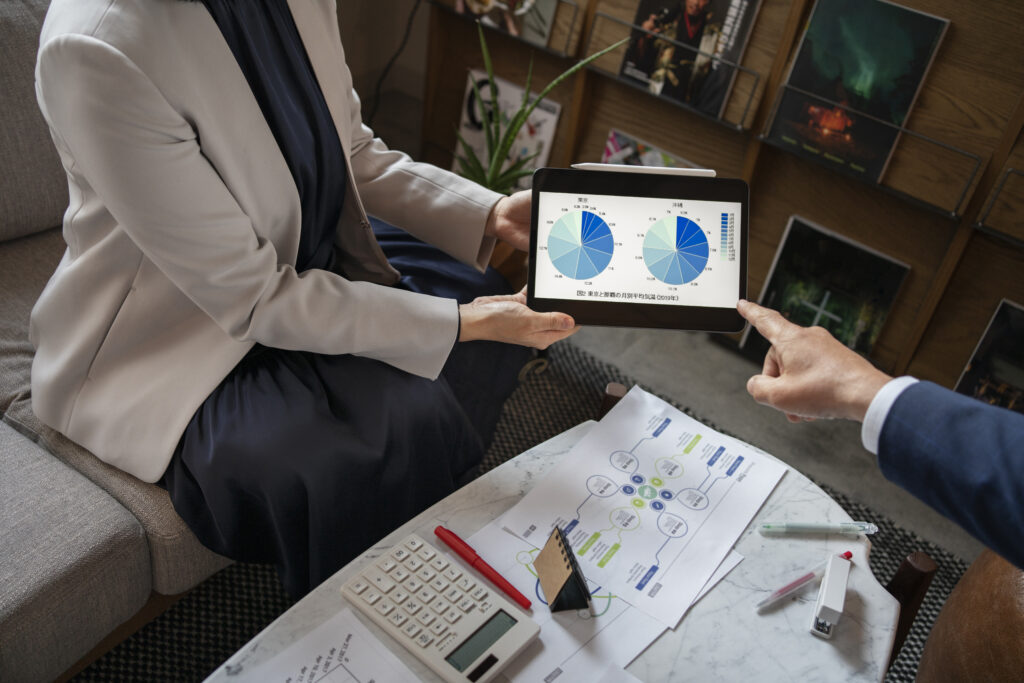Insights
Uncover Knowledge, Explore Ideas, and Gain Insights.
Insights

ABOUT THE AUTHOR
Puan Hajjah Afidah Kamaruddin
As Vice President at Commerce Access, Puan Hajjah Afidah brings over 20 years of expertise in customer service, CRM systems, and performance management. A champion of responsible business practices, she advocates for ethical governance, inclusive service models, and tech-enabled solutions that support sustainable operations while exploring how ESG values can elevate client experience in the BPO sector.
- Read Time: 4 minutes
- Puan Hajjah Afidah Kamaruddin
Why Omnichannel Support is Now Essential for Malaysian Contact Centres
- Read Time: 4 minutes
- Puan Hajjah Afidah Kamaruddin

Puan Hajjah Afidah Kamaruddin
As Vice President at Commerce Access, Puan Hajjah Afidah brings over 20 years of expertise in customer service, CRM systems, and performance management. A champion of responsible business practices, she advocates for ethical governance, inclusive service models, and tech-enabled solutions that support sustainable operations while exploring how ESG values can elevate client experience in the BPO sector.
Customer service has changed. So have customers.
People no longer wait in line or stay on hold. They reach out via WhatsApp, drop a DM on Instagram, or send an email; sometimes all at once. In this environment, contact centres that rely on a single channel are already behind.
Omnichannel support is no longer a nice-to-have. It’s a baseline expectation. And for Malaysian contact centres, the move toward seamless, multichannel engagement isn’t just a trend. It’s a necessity.
What Omnichannel Actually Means
True omnichannel support means more than offering multiple ways to get in touch. It’s about connecting every touchpoint into a single, unified experience. Here’s what that looks like in action:- A customer starts a conversation via live chat
- Follows up through a phone call
- Later checks the response via email

Why It Matters in Malaysia
Malaysia is a fast-digitising market. Mobile-first behaviour is common. WhatsApp is the go-to for everyday communication. Younger users prefer live chat or social media, while others still rely on traditional calls. A single-channel strategy simply cannot cater to this diversity.
What makes it even more important is the cultural factor. Malaysians often blend languages in conversation. A customer might start with Malay, switch to English, and end in Cantonese. Context matters. So does tone.
When channels are disconnected, customers are forced to repeat themselves. This breaks trust and increases frustration.

The Business Case for Going Omnichannel
Here’s what Malaysian businesses gain by adopting omnichannel support:
- Better Customer Retention
Customers are more likely to stay with brands that offer convenience and consistency. - Faster Resolution Time
Agents can access full conversation histories, making it easier to resolve issues without delay. - Lower Operational Costs
Well-integrated systems reduce duplication, minimise errors, and streamline agent workloads. - Improved Data and Insights
Tracking customer journeys across channels provides valuable feedback for improving products and services.
How Commerce Access Delivers Omnichannel Solutions
At Commerce Access, we’ve helped clients across sectors—from telco and utilities to government agencies—transition from siloed channels to unified customer engagement platforms.
We do this by:
- Implementing cloud-based contact centre systems with full channel integration
- Assigning dedicated agents to each channel, ensuring they specialise in delivering consistent service quality whether it’s live chat, social media, email, or voice
- Embedding quality assurance tools to ensure tone, accuracy, and empathy across all interactions
- Designing escalation paths so complex issues reach the right person fast, regardless of where the conversation began
Our clients have seen improved satisfaction scores, reduced complaints, and stronger customer relationships as a result
What to Keep in Mind Before Going Omnichannel
Adopting an omnichannel model takes more than adding new tools. It requires:
- A shift in mindset; from channel management to customer journey management
- Investment in staff training, not just systems
- A clear escalation structure that works across all platforms
- Robust reporting and compliance features, especially when serving regulated industries

Final Thought
Customers don’t think in channels. They think in outcomes. When someone reaches out, they’re not concerned with which platform they use. They just want their problem solved quickly, respectfully, and without having to repeat themselves. Omnichannel contact centres make this possible. And in a market as multilingual, mobile, and fast-moving as Malaysia, they’re not just relevant. They’re essential. At Commerce Access, we’re helping organisations reimagine service for this new reality; putting people at the centre, no matter how they reach out.Key Takeaways
- Omnichannel support is no longer optional — it’s a baseline expectation for Malaysian contact centres serving today’s digitally connected and mobile-first customers.
- True omnichannel means connecting all touchpoints into one seamless experience, enabling agents to resolve issues faster without customers needing to repeat themselves.
- Malaysia’s multilingual and multi-channel communication habits make context, tone, and flexibility essential for delivering customer satisfaction.
- An omnichannel strategy improves customer retention, reduces operational costs, speeds up resolution, and provides valuable insights across the customer journey.
- Commerce Access helps businesses transition to unified contact centre systems, ensuring consistent, high-quality service across every channel — from WhatsApp to voice calls.
More Insights
View how we empowered clients to reach their fullest potential.

